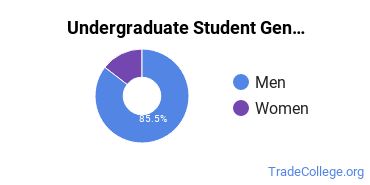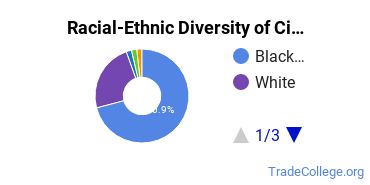Find Trade Colleges
Cincinnati School of Barbering & Hair Design Inc Trade Programs
Cincinnati School of Barbering & Hair Design Inc is a private for-profit institution situated in Cincinnati, Ohio. Cincinnati is considered a suburb and offers tranquility and safety near the excitement of a city center.
Featured schools near , edit
Where Is Cincinnati School of Barbering & Hair Design Inc?

Contact details for Cincinnati School of Barbering & Hair Design Inc are given below.
| Contact Details | |
|---|---|
| Address: | 6500 Colerain Avenue, Cincinnati, OH 45239 |
| Phone: | 513-923-3385 |
| Website: | cincinnatischoolofbarbering.com |
Cincinnati School of Barbering & Hair Design Inc Undergraduate Student Diversity
Gender Diversity
Of the 52 full-time undergraduates at Cincinnati School of Barbering & Hair Design Inc, 88% are male and 12% are female.

Racial-Ethnic Diversity
The racial-ethnic breakdown of Cincinnati School of Barbering & Hair Design Inc students is as follows.

| Race/Ethnicity | Number of Grads |
|---|---|
| Asian | 1 |
| Black or African American | 34 |
| Hispanic or Latino | 0 |
| White | 14 |
| International Students | 0 |
| Other Races/Ethnicities | 3 |
Cincinnati School of Barbering & Hair Design Inc Trade School Concentrations
The table below shows the number of awards for each concentration.
| Major | Undergraduate Certificate | TOTAL |
|---|---|---|
| Barbering/Barber | 23 | 23 |
| TOTAL | 23 | 23 |
References
*The racial-ethnic minorities count is calculated by taking the total number of students and subtracting white students, international students, and students whose race/ethnicity was unknown. This number is then divided by the total number of students at the school to obtain the racial-ethnic minorities percentage.
More about our data sources and methodologies.
